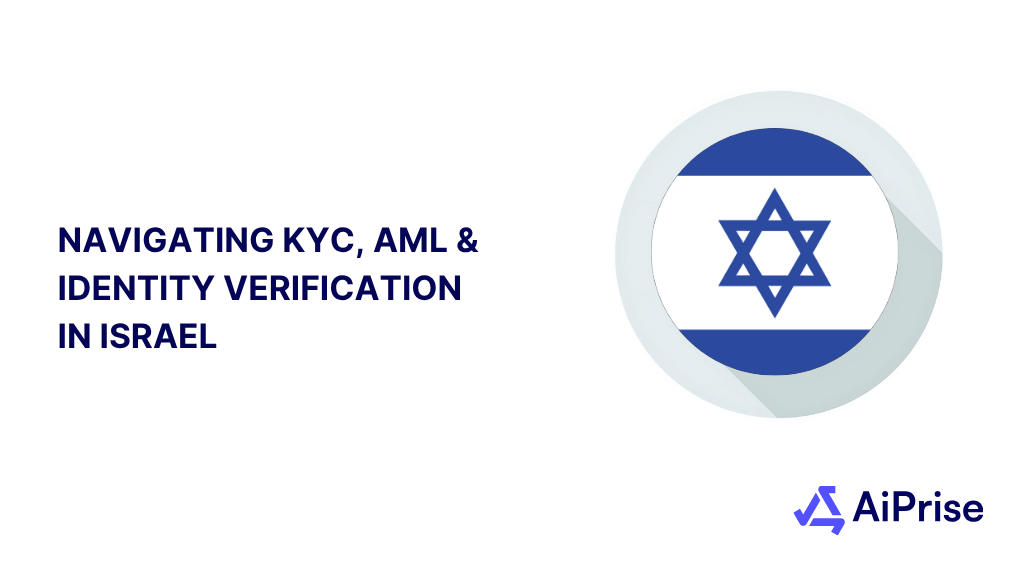AiPrise
17 mins read
July 11, 2025
Understanding Shell Companies in Money Laundering

Key Takeaways










Money laundering is a growing global issue that affects economies, businesses, and financial systems across the world. The process involves concealing the origins of illegally obtained funds, often through complex networks of transactions and shell companies.
We understand that navigating the complexities of money laundering and the involvement of shell companies can be daunting and concerning for businesses striving to maintain compliance and protect their reputation.
In fact, the estimated amount of money laundered annually is staggering – between 2% and 5% of global GDP, which translates to somewhere between $800 billion and $2 trillion in current US dollars. While this is an alarming figure, it is likely only the tip of the iceberg, as the clandestine nature of money laundering makes it difficult to pinpoint the full scale of the problem.
Understanding how shell companies contribute to money laundering is crucial for businesses and financial institutions alike. By knowing the risks and implementing proper safeguards, you can protect your organization from being inadvertently involved in illicit activities.
In this blog post, we’ll explore what shell companies are, how they are used in money laundering schemes, and how advanced solutions like KYC, KYB, and AML can help safeguard your business against these risks.
TL;DR
- Shell companies (paper entities) are key to money laundering, hiding $800B-$2T illicit funds annually.
- They obscure ownership, enable fake trades, real estate scams, and complex layering.
- Businesses face significant legal and reputational risks.
- Red flags: Opaque transactions, unusual activity, vague payments, and high-risk jurisdictions.
- Solutions: Implement KYC, KYB (identity/business verification), and AML (suspicious pattern detection) to protect your business.
What Are Shell Companies?
A shell company is essentially a business entity that exists on paper but has little or no actual operations or assets. These companies are often used for legal purposes, such as holding intellectual property or acting as a subsidiary for larger corporations. However, their lack of a physical presence, employees, or significant assets makes them a perfect vehicle for less transparent activities.
Shell companies are formed due to specific characteristics that allow them to facilitate various objectives, some legitimate, but many are exploited for illicit purposes like money laundering:
- Anonymity/Obscured Ownership: They enable individuals to hide their identity or protect personal information by using nominee directors or complex ownership chains. This opacity is a key feature attractive to those seeking to conceal illicit activities.
- Facilitating Asset Transfers: Shell companies can easily move money or assets across borders, often without immediate scrutiny, which is ideal for disguising the origin or destination of funds.
- Creating Complex Structures: They can be interwoven into larger, intricate corporate networks, making it extremely difficult for regulators and investigators to trace the true flow of money and identify beneficial owners.
The lack of transparency and limited operational presence of shell companies make it incredibly difficult to trace the origins of money or determine the true owners of assets. This can lead to businesses unknowingly engaging with a shell company, making them vulnerable to money laundering schemes.
How Do Shell Companies Facilitate Money Laundering?

Shell companies are often exploited as tools in the money laundering process due to their inherent characteristics: minimal transparency, lack of substantial operations, and ease of establishment. These features make them attractive vehicles for concealing illicit financial activities.
Concealing Ownership and Transactions
One of the primary ways shell companies facilitate money laundering is by obscuring the identities of the ultimate beneficial owners (UBOs). These companies often operate in jurisdictions with strict privacy laws, allowing individuals to hide their ownership and control over assets.
By routing funds through shell companies, illicit actors can create a complex web of transactions that is difficult for authorities to trace back to the original source.
Engaging in Trade-Based Money Laundering (TBML)
Shell companies can manipulate trade invoices—either over-invoicing or under-invoicing goods and services—to transfer value across borders. This technique disguises the illicit transfer of money as legitimate trade, making it challenging for regulators to detect and prevent money laundering activities.
Facilitating Real Estate Transactions
High-value real estate properties are often purchased through shell companies to mask the true ownership and source of funds. These properties can be bought and sold multiple times at inflated prices to further launder money, creating a façade of legitimate investment while concealing illicit origins.
Layering Funds Through Complex Structures
Money launderers frequently use shell companies as part of a layering strategy to obscure the origin of illicit funds. By directing illicit funds via a shell company and then transferring them to another account in a jurisdiction with less stringent privacy laws, criminals can create a dead end in the money trail. This makes it more difficult for investigators to follow the money back to illegal activities.
Exploiting Weak Regulatory Environments
Certain jurisdictions offer relaxed regulatory rules and minimal oversight, making them attractive locations for establishing shell companies. These environments provide opportunities for money launderers to operate with reduced risk of detection and enforcement.
Real-World Examples of Shell Companies Used for Money Laundering
Shell companies have frequently featured in major money laundering schemes. Below are some notable instances:
- Danske Bank Scandal (2018): Denmark's largest bank became embroiled in a significant money laundering controversy, with shell companies playing a central role.
- The 1MDB Scandal (2015): This case involved allegations of billions of dollars being illicitly diverted from Malaysia's state fund and subsequently laundered through shell companies and offshore accounts.
- Panama Papers (2016): The leak of the Panama Papers in 2016 brought to light the widespread use of shell companies for various illicit activities.
- Pandora Papers (2021): The Pandora Papers constituted a massive leak of nearly 12 million documents, exposing how global elites engaged in corrupt practices and money laundering through shell companies.
The Legal and Regulatory Risks of Shell Companies
Shell companies, while often established for legitimate business purposes, can pose significant legal and regulatory risks, especially when misused for illicit activities like money laundering. Understanding these risks is crucial for businesses and financial institutions to ensure compliance and protect against potential legal repercussions.
Corporate Criminal Liability
In the United States, corporations can be held criminally liable for offenses committed by their employees or agents within the scope of their employment. This principle extends to activities involving shell companies.
Suppose a shell company is used to facilitate illegal activities, such as money laundering. In that case, the parent corporation may face criminal charges under various statutes, including the Money Laundering Control Act and the Bank Secrecy Act. Penalties can include substantial fines, asset forfeiture, and reputational damage.
Regulatory Scrutiny and Compliance Obligations
Financial institutions and businesses engaging with shell companies are subject to stringent regulatory requirements. The Bank Secrecy Act (BSA) mandates that institutions implement anti-money laundering (AML) programs, conduct customer due diligence, and report suspicious activities.
Failure to comply with these obligations can result in enforcement actions by regulators, including the Financial Crimes Enforcement Network (FinCEN), and may lead to penalties such as fines and restrictions on business operations.
Impact of the Corporate Transparency Act (CTA)
The Corporate Transparency Act, enacted in 2021, requires certain entities to disclose their beneficial owners to FinCEN to combat anonymous shell companies. Although the enforcement of this requirement has faced legal challenges and uncertainties, it represents a significant step toward enhancing transparency and accountability within corporate structures.
Non-compliance with the CTA can expose businesses to legal risks and hinder their ability to operate in certain jurisdictions.
Civil Liabilities and Civil RICO
Beyond criminal penalties, businesses may also face civil liabilities if they are found to be complicit in the misuse of shell companies for illegal activities. Under the Racketeer Influenced and Corrupt Organizations (RICO) Act, entities can be sued for damages resulting from racketeering activities, including money laundering.
Civil actions can lead to substantial financial penalties and the potential for treble damages, further emphasizing the importance of vigilance and compliance in corporate operations.
International Implications
Given the global nature of financial markets, activities involving shell companies can have international legal implications. Engaging with shell companies that are implicated in illegal activities can expose businesses to risks in other jurisdictions, including sanctions, asset freezes, and restrictions on doing business.
Companies must conduct thorough due diligence and understand the international legal landscape to mitigate these risks.
How to Spot a Shell Company?

Identifying a shell company isn’t always straightforward, but several red flags can help you recognize potential misuse. By staying vigilant and knowing what to look for, businesses can better protect themselves from engaging with illicit entities.
Inability to Identify Wire Transfer Originators or Recipients
One major warning sign is when it is impossible to obtain the necessary information to identify the originators or recipients of wire transfers. This could involve an inability to track funds through online searches or commercial databases, or difficulties in getting a direct response from banks regarding the transactions.
If transparency is lacking, it may indicate the use of a shell company to obscure the flow of money.
Unusual Wire Transfer Activity
Another red flag is irregular wire transfer activity. If a foreign correspondent bank or company is processing an unusually high volume of transfers that deviate from its typical business profile, this should raise suspicions.
If the activity doesn’t align with the company’s operations or the transactions seem disproportionate to the business's size or scope, it could be an indication of illicit activity.
Payments Lacking Purpose or Reference
Transactions that are vague or lack proper documentation are another potential indicator of a shell company. If payments do not specify the purpose of the transaction, or if they only reference a contract or invoice number without clear ties to tangible goods or services, it could be an attempt to hide the true nature of the transaction.
Mismatch Between Goods/Services and Company Profile
A significant mismatch between the company’s profile and the goods or services it claims to offer is another red flag.
For example, if a company claims to operate in a particular industry, but the goods or services it provides do not align with that industry, this could be a sign that the company is being used for fraudulent purposes or as a shell entity.
Address-Related Inconsistencies
The use of shared addresses or a registered agent’s address without any physical presence could suggest a shell company.
If a company is using an address that is linked to multiple other businesses, or if it lacks a real office location altogether, it could be designed to conceal ownership and operations.
Unusual Beneficiary Patterns
If there is an unusually large number of beneficiaries receiving funds from a single company, or if the payments are spread across many unrelated entities, it could point to money laundering activities.
Shell companies often distribute funds in a way that makes it more difficult to trace the money back to its original source.
Frequent Involvement of High-Risk Jurisdictions
Frequent transactions with high-risk jurisdictions or offshore financial centers can also raise alarms. These locations often have less stringent regulatory controls, making them attractive for those trying to conceal the true ownership of assets or engage in illicit activities.
Regular dealings with such jurisdictions may indicate the presence of a shell company.
Multiple High-Value Transfers Without Legitimate Purpose
Finally, multiple high-value transactions with no legitimate business purpose should be a major warning sign. If large sums of money are being transferred frequently and without clear reasons or documentation, it suggests the possibility of money laundering, with the shell company serving as a vehicle for hiding illicit funds.
Recognizing these red flags is crucial for businesses and financial institutions to protect themselves from unknowingly engaging with shell companies involved in illegal activities. Implementing thorough due diligence and monitoring for these indicators can help identify potential threats and prevent financial crimes.
The Role of KYC and KYB in Preventing Money Laundering
Know Your Customer (KYC) and Know Your Business (KYB) are essential practices for businesses to identify and prevent money laundering and detect shell companies. KYC focuses on verifying the identity of individual customers, ensuring they are not involved in illegal activities or listed on sanctions watchlists. KYB, on the other hand, verifies the legitimacy of a business, checking its ownership structure and registration details.
We understand that implementing thorough KYC and KYB procedures can be resource-intensive and complex, especially when trying to balance compliance with smooth customer experiences.
Both KYC and KYB play a vital role in uncovering discrepancies such as complex ownership structures, hidden beneficial owners, or mismatched business activities—red flags that suggest a company might be a shell entity. By conducting thorough KYC and KYB checks, businesses can reduce the risk of engaging with fraudulent entities and ensure compliance with anti-money laundering (AML) regulations.
Regularly updating KYC and KYB records further helps businesses stay ahead of potential risks, ensuring integrity in their transactions and protecting against the dangers of shell companies and financial crimes.
The Importance of AML (Anti-Money Laundering) Solutions

Anti-Money Laundering (AML) solutions are crucial tools that help businesses detect and prevent money laundering activities, including those involving shell companies.
These solutions are designed to identify suspicious behavior and transactions, allowing businesses to take proactive steps to protect themselves and comply with global regulatory requirements.
How AML Solutions Help Identify Shell Companies
AML solutions typically use advanced algorithms, which are step-by-step computational procedures, and machine learning (ML), a type of artificial intelligence that helps systems learn from data, to analyze transaction data and detect patterns that might indicate money laundering.
By identifying these red flags, AML tools help businesses pinpoint potential shell companies and prevent illegal activities.
Transaction Monitoring and Reporting
AML systems often include transaction monitoring features that track the flow of funds in real-time. This allows businesses to detect unusual patterns, such as frequent high-value transactions with no clear business purpose. Suspicious activity is then flagged for further investigation.
Additionally, AML solutions provide businesses with the ability to file reports to regulatory authorities, such as Suspicious Activity Reports (SARs), which is a crucial step in ensuring compliance with AML regulations.
Reducing Legal and Financial Risks
By implementing AML solutions, businesses can minimize the risk of inadvertently engaging in money laundering activities.
Non-compliance with AML regulations can lead to severe penalties, including fines, sanctions, and reputational damage. Using advanced AML tools not only ensures regulatory compliance but also reduces the likelihood of becoming involved with shell companies that may pose legal and financial risks.
Ensuring Ongoing Compliance
AML regulations are constantly evolving to address new and emerging threats. Advanced AML solutions help businesses stay up-to-date with these changes by providing automatic compliance updates.
This ensures that businesses are always aligned with the latest regulations, reducing the risk of falling behind in an ever-changing compliance landscape.
Also Read: Understanding the Five Pillars of AML Compliance Program
How AiPrise Helps Combat Shell Companies and Money Laundering
AiPrise provides advanced KYC (Know Your Customer), KYB (Know Your Business), and AML (Anti-Money Laundering) solutions designed to help businesses identify and prevent fraudulent activities, including those involving shell companies.
- Seamless Identity Verification with Cutting-Edge Technology: Powered by AI and machine learning, AiPrise helps businesses verify customer and business identities efficiently, reducing the risk of engaging with shell companies or fraudulent individuals.
- Real-Time KYC and KYB Solutions: AiPrise offers real-time identity checks and business validations to identify red flags related to shell companies. This helps businesses ensure they are not unknowingly involved with illicit activities.
- Advanced AML Tools for Suspicious Activity Detection: AiPrise’s AML tools flag suspicious activities and help detect and prevent money laundering, ensuring compliance with global regulations and minimizing the risk of fraudulent transactions.
- Streamlined Compliance and Risk Management: Integrating AiPrise’s solutions into your business operations allows you to streamline verification processes, reduce fraud risk, and maintain continuous regulatory compliance.
- Protecting Your Business and Reputation: AiPrise enables your business to be better equipped to combat financial crime, safeguarding both its reputation and operations while keeping your business safe from the dangers of shell companies and money laundering.
Conclusion
Shell companies play a significant role in money laundering and pose serious risks to businesses. Recognizing their red flags and understanding the mechanisms behind their misuse is essential for mitigating these threats. By implementing strong KYC, KYB, and AML processes, businesses can protect themselves from the dangers of illicit financial activities and ensure compliance with global regulations.
Staying vigilant and proactive in monitoring and verifying customer and business identities is key to maintaining a secure and transparent operation.
Don’t let shell companies and money laundering threats jeopardize your business. With AiPrise’s advanced KYC, KYB, and AML solutions, you can streamline your compliance processes and protect your operations. Book a Demo today to see how AiPrise can help you enhance verification, reduce risks, and ensure regulatory compliance with ease.
Frequently Asked Questions
1. What is a shell company?
A shell company is a business entity that exists only on paper and has little or no actual operations or assets. These companies are often used to hide ownership, move assets, or engage in fraudulent activities such as money laundering.
2. How do shell companies facilitate money laundering?
Shell companies can conceal the origin of illicit funds by masking ownership and creating complex structures that make it difficult to trace the source of the money. They are often used to move money across borders or to make financial transactions appear legitimate.
3. What are the red flags that indicate a company might be a shell company?
Red flags include a lack of physical presence, complex or opaque ownership structures, frequent involvement in high-value transactions with no clear business purpose, and transactions that involve high-risk jurisdictions with relaxed regulations.
4. How can businesses protect themselves from engaging with shell companies?
Businesses can protect themselves by implementing robust Know Your Customer (KYC) and Know Your Business (KYB) procedures, which help verify the identity of individuals and companies they engage with. Regular transaction monitoring and due diligence are also critical.
5. What legal risks are associated with shell companies?
Engaging with shell companies involved in money laundering can lead to legal consequences, including fines, penalties, and damage to a business’s reputation. In some cases, businesses can face criminal liability if they knowingly facilitate illegal activities.
6. How can AML (Anti-Money Laundering) tools help detect shell companies?
AML tools analyze transactions for suspicious patterns, flagging activities like large, unexplained money transfers or transactions involving shell companies. These tools help businesses identify potential risks and comply with anti-money laundering regulations.
You might want to read these...

AiPrise’s data coverage and AI agents were the deciding factors for us. They’ve made our onboarding 80% faster. It is also a very intuitive platform.













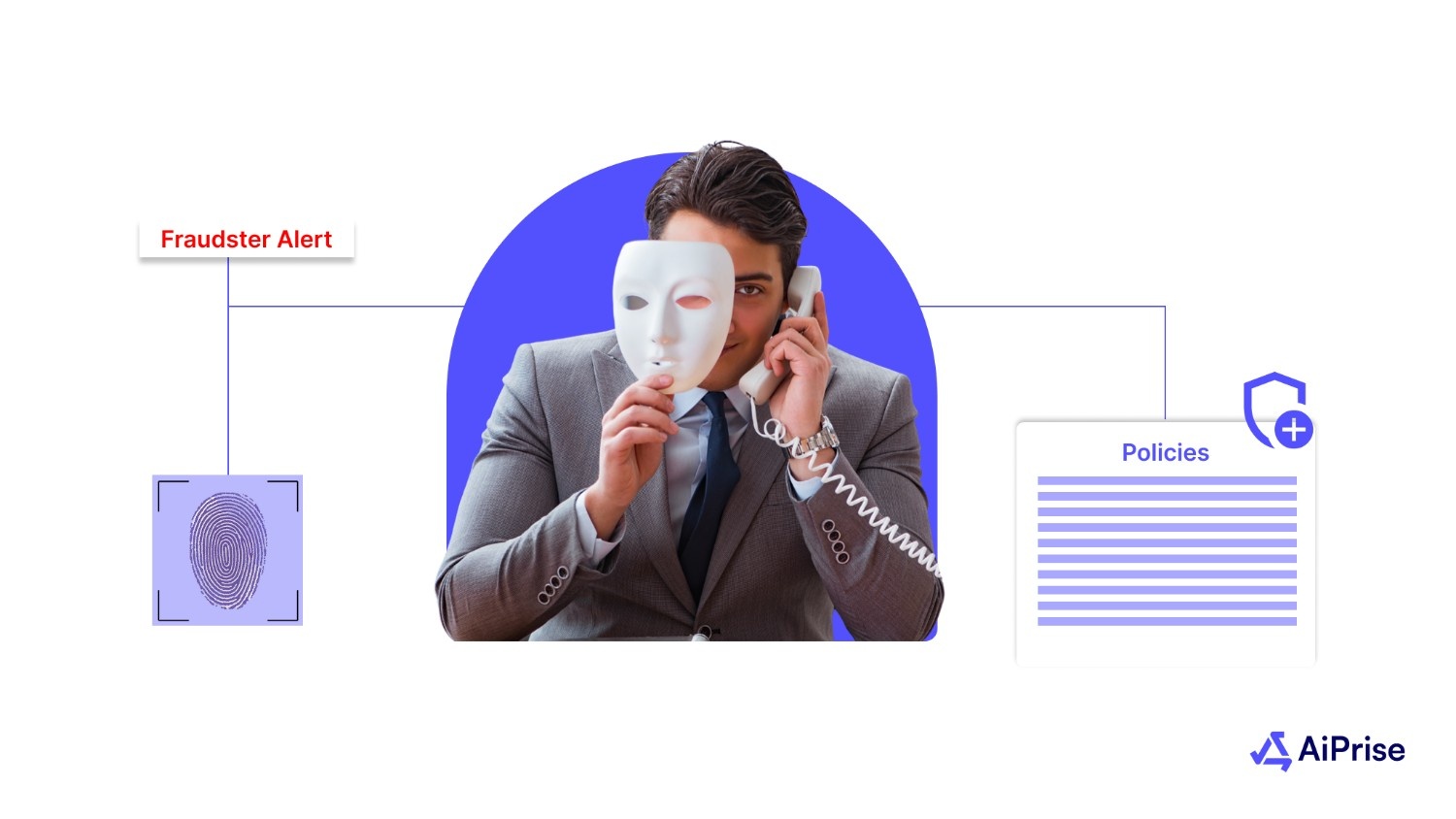

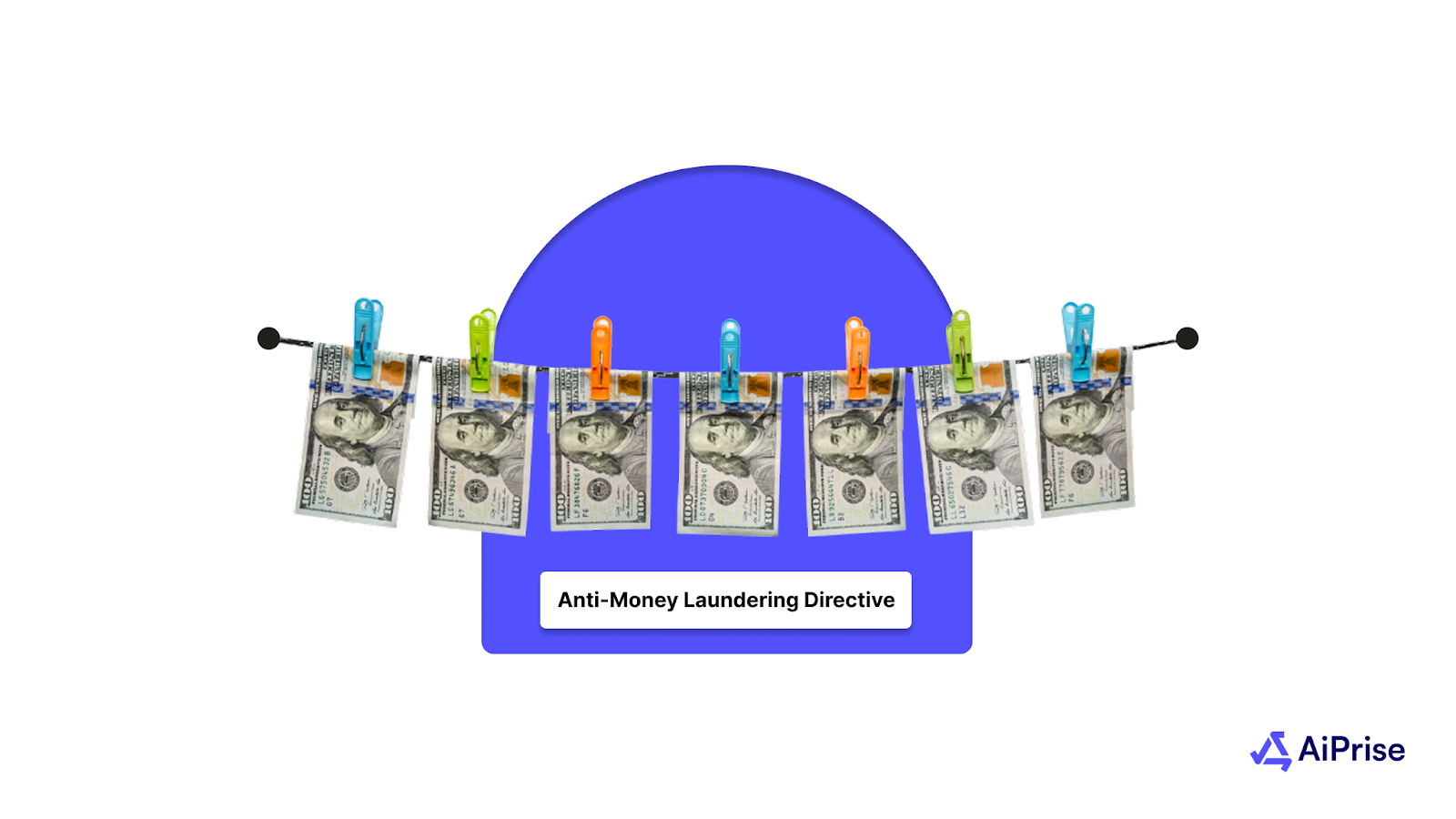
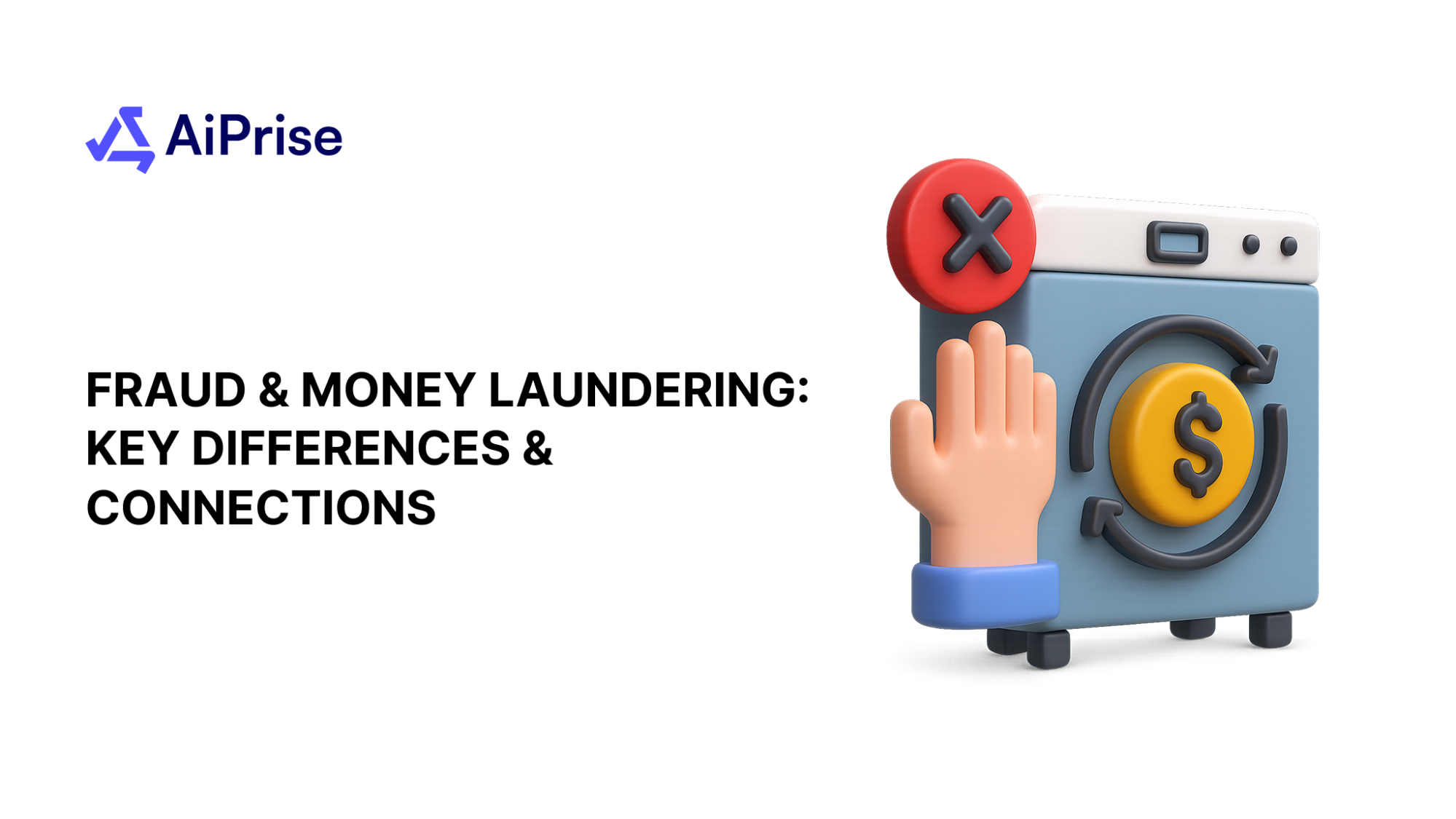

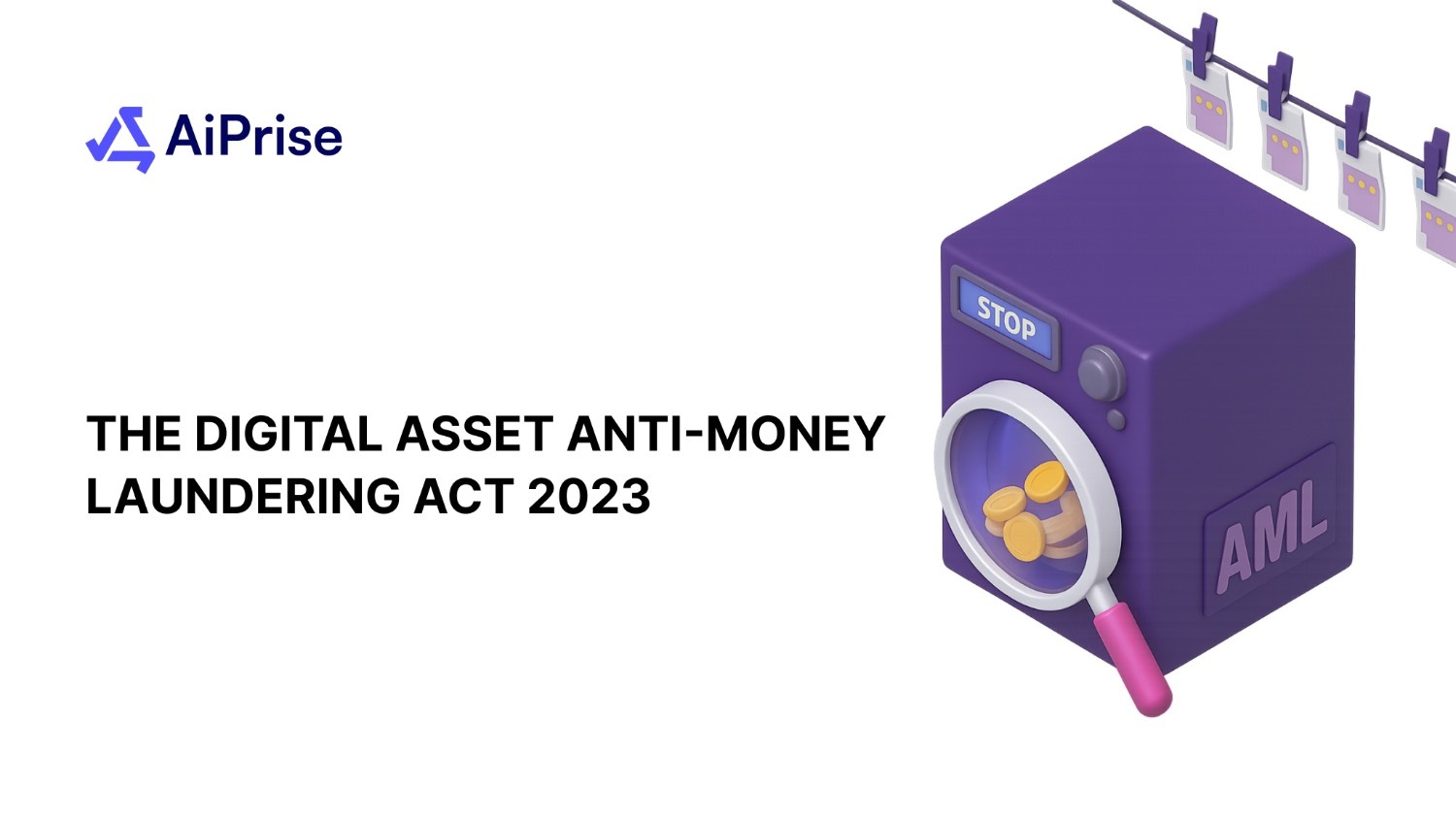
.png)
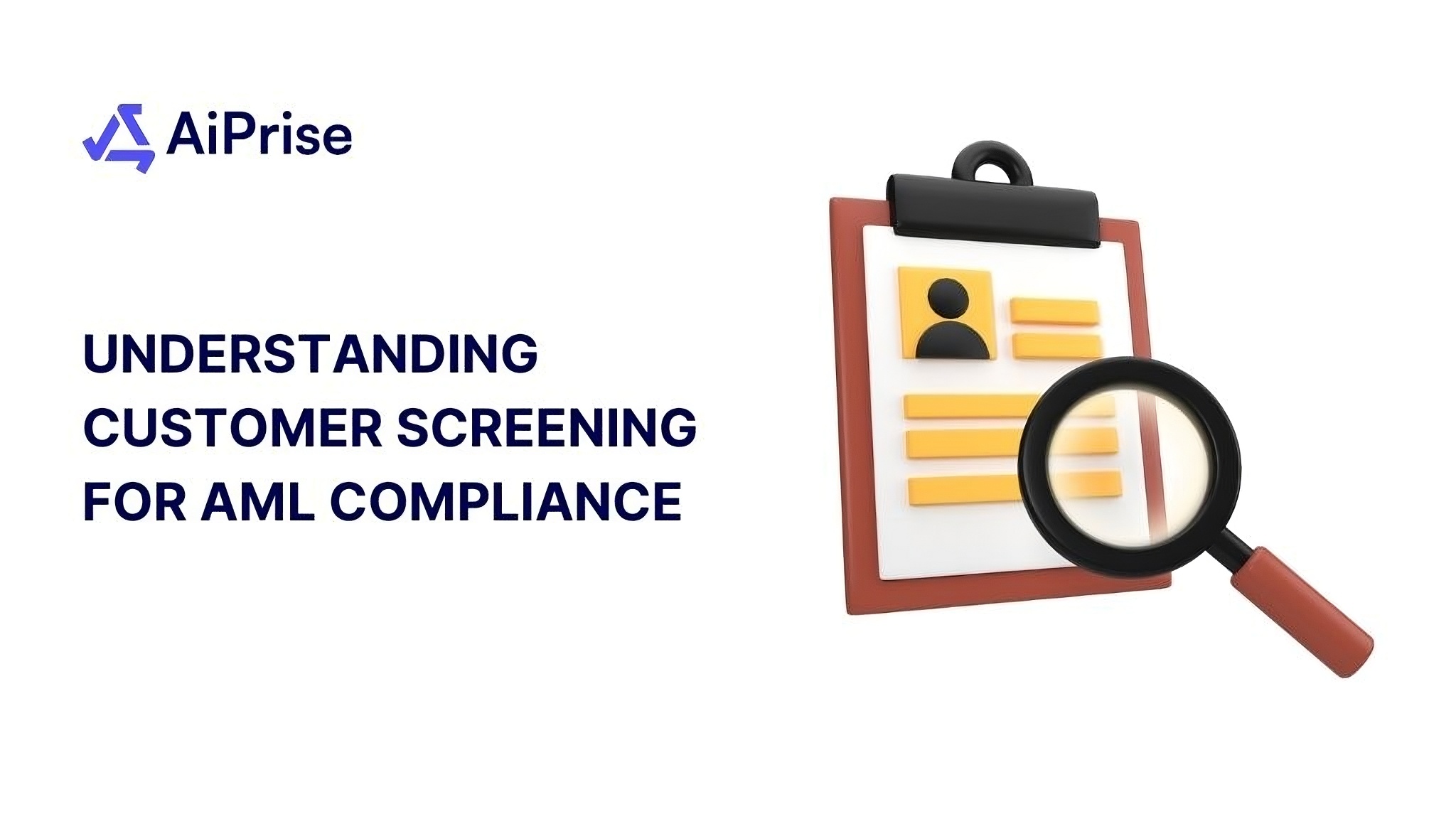
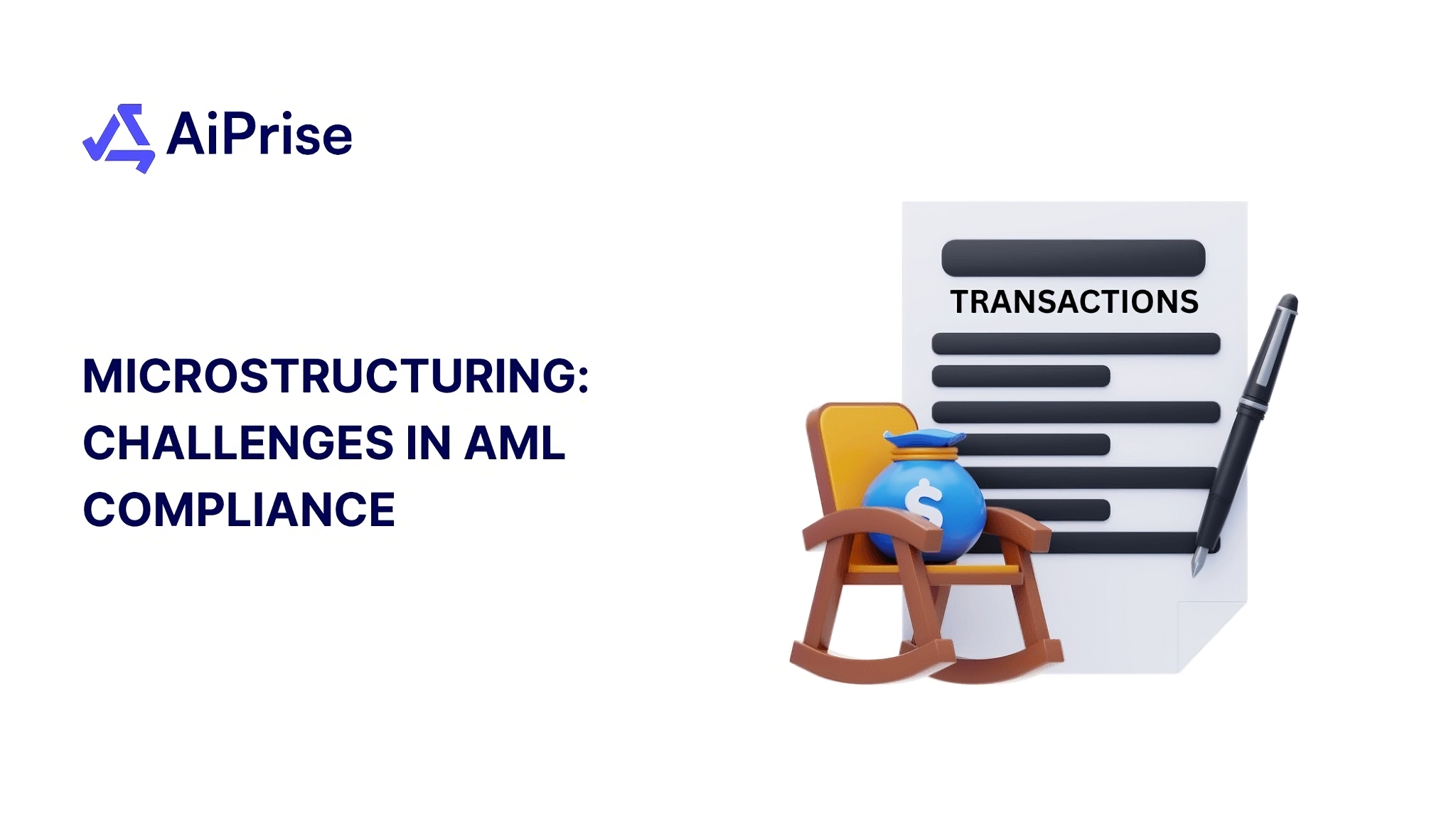
.png)







.png)






